You’ve probably heard of the buzz surrounding CBD lately as it has exploded into the marketplace. But what is marketing buzz and what is true science? In this article, we demystify the subject and provide the truth behind the amazing benefits of CBD oil.
Maybe you heard that it can help with your achy knee, chronic pain, or help you get some extra ZZZs at night—and yes, CBD oil may be helpful for both of these things. CBD oil has numerous benefits. But are they overblown? What’s based on research, and what’s based on anecdotes? Don’t worry, we’ll get to all that. But before we dive into the health benefits, let’s cover what CBD oil actually is.
CBD is short for cannabidiol (CBD is much easier to say), and is a component of the cannabis plant. Actually, it is one of the hundreds of phytocannabinoids found in cannabis sativa plants. You may hear “cannabis” and immediately think of marijuana—but rest assured, we are not talking marijuana. Let me explain.
When we discuss its benefits, we’ll mostly be discussing CBD oil specifically since it is the most well-studied and popular form of CBD for achieving health benefits–because it is the most potent form widely available to CBD lovers.
Hemp vs. Marijuana
“Unlike THC, CBD does not have psychoactive properties and will not cause you to feel high.”
Cannabis represents a whole plant family—think of it like your last name. You and your brother or sister are in the same family, but are not exactly the same.
For example, the marijuana plant is part of the cannabis plant family and contains high levels of tetrahydrocannabinol (THC). THC is psychoactive component that causes a person to feel “high.” The considerable levels of THC in marijuana are the reason people feel high when using products made with marijuana.
Although CBD is found in the marijuana plant, CBD products are not derived from them. CBD oil products are made from marijuana’s “sister,” the industrial hemp plant. The hemp plant is part of the cannabis plant family, but it does not contain high levels of THC. In other words, you can’t get high from the hemp plant. Unlike THC, neither CBD oil nor hemp seed oil have psychoactive properties and will not cause you to feel “high.”
Is CBD Legal?

When it comes to the legality of CBD, there are some important details to take note of. The first is, since the passing of the Farm Bill in 2014, the industrial hemp plant, as well as hemp seed oil and CBD products, are federally legal in the United States. The second detail is that to be considered legal, CBD oil products and the hemp plants they come from must contain less than 0.3% THC.
These are the rules; no ifs, ands, or buts. If a plant or product exceeds the THC limit, then it is no longer considered a hemp product or hemp seed oil and crosses over to the other side—to the categorization of marijuana.
The marijuana plant is considered a Schedule I drug in the United States. This means it is federally illegal to buy and sell.
Serious stuff! However, some states have made marijuana legal for medical use, and some have made it legal for both medical and recreational use. This may seem a bit confusing as each state differs, so always look into what is legal in your state.
How Is CBD Oil Made?
Let’s break down how CBD oil is actually made. First, CBD oil is extracted from the plant leaves, using either CO2 extraction (yes, carbon dioxide just like you exhale from your lungs, only much, much stronger) or a solvent method (aka alcohol). The solvent method involves soaking the hemp leaves and stems in high-percentage alcohol, which essentially dissolves the CBD out of the leaves.
“If a plant or product exceeds the THC limit, then it is no longer considered a hemp product and crosses over to the other side—I mean, marijuana, of course.”
CO2 extraction uses CO2 gas (this is called subcritical) or CO2 plus pressure and heat (this is called supercritical) to pull the CBD from the hemp plants.
CBD Isolates vs. Full-Spectrum CBD
Now that we understand how the CBD gets out of the leaves, let’s talk about the types of CBD oil available. CBD oil products can either be made from an isolate, where all other plant constituents are removed, or full-spectrum, which contains different elements of the plant–including all the natural cannabinoids of the hemp plant (such as THC and and other cannabinoids). There’s also a middle-ground, called “Broad Spectrum.”
Simply put, CBD isolate is CBD and nothing else; it is the purest form of CBD that can be used in products. Remember how we talked about the hundreds of other phytocannabinoids in the hemp plant? Gone. Terpenes (which give the plant its odor and flavor)—gone. Other naturally occurring antioxidants—gone. I think you get the picture.
“Broad spectrum CBD oil is a good option for those who want to avoid even trace amounts of THC but still want the benefits of CBD oil and the other cannabinoids.”
Full-spectrum CBD oil contains elements like terpenes, flavonoids, and fatty acids, which are said to have an “entourage” effect that amplifies the effect of the CBD. In full-spectrum CBD oil you get a synergistic blend of all that Mother Nature included in the hemp plant.
In broad spectrum CBD, the THC is removed but all of the other cannabinoids are kept intact. This is a good option for those who want to avoid even trace amounts of THC but still want the health benefits of Cannabidiol and the other cannabinoids.
How CBD Oil Works
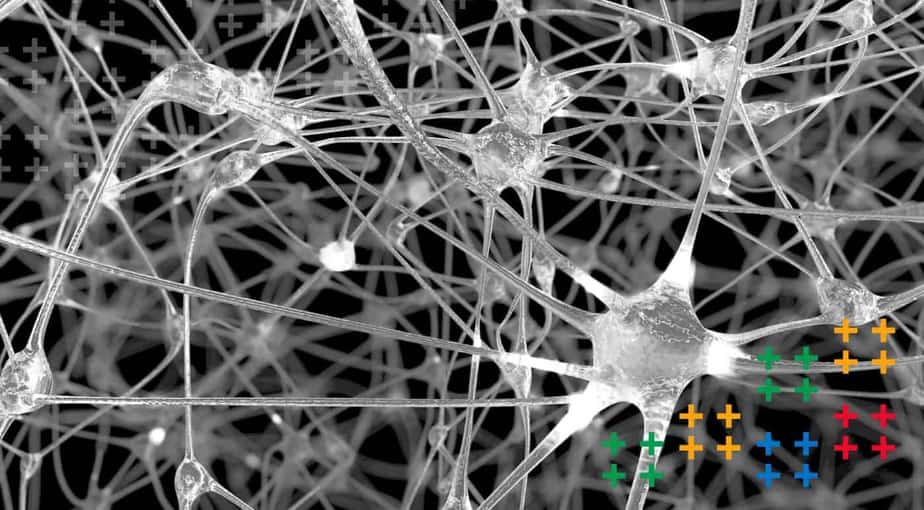
Okay, so now we know what CBD oil is, where it comes from, and how CBD oil is made. Now the question on everyone’s mind is: How does this stuff work? Don’t fret, I can explain.
CBD’s main effects are through the endocannabinoid system. The endo-what? Sound it out: the end-doe-CAN-ah-bin-oid system. It’s found in our brain and brain and spinal cord, and our bodies’ central nervous system, and affects many aspects of our physiology, including pain relief, inflammation, stress, and behaviors. It works through receptors scattered throughout the brain, nerves, and other tissues, and these receptors respond to CBD.
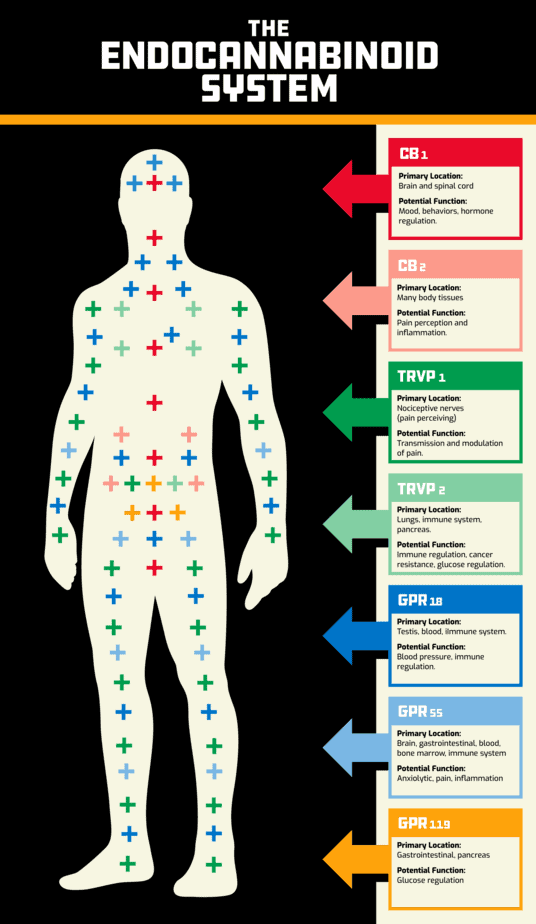
Let’s get into some specifics. CBD oil stimulates the CB1 and CB2 receptors within this system, which may help bring certain areas of the brain and body back into balance. For example, CB2 receptors modulate both the pain and inflammation responses of the body. This means CBD oil activates these receptors and, as a result, sensations of pain and levels of inflammation decrease. Yay for CBD and pain relief!
CB1 receptors are found throughout the brain and spinal cord, and they have been associated with mood, memory, and behavior. When CBD oil interacts with the CB1 receptors, we see changes in stress levels, anxiety disorders, and other aspects of mental health and well-being. Specifically, we’re seeing some encouraging data that CBD may work to provide anxiety relief that may reduce the negative experiences of depression and post traumatic stress disorder (PTSD).
Let’s be real—the research on how CBD oil affects the brain and body is only just beginning. While we are starting to understand all the ways CBD oil can affect us, we are continually learning more.
Benefits of CBD
Research on the benefits of CBD oil has exploded in recent years—I am sure this is no surprise to you. Scientists are conducting research studies to explore the potential role CBD oil may have in alleviating symptoms of various health conditions, both physical and mental/emotional. Exciting!
This is good news for your achy knee, your issues sleeping, and your acne. As more human and animal studies are done, our understanding of all of the benefits of CBD oil continues to grow.
“The research on how CBD affects the brain and body is only just beginning. While we are starting to understand all the ways CBD can affect us, we are continually learning more.”
CBD oil has also given hope to people suffering from chronic diseases. Some CBD oil studies have shown promising results for resolving symptoms for which conventional therapies are either ineffective or come with too many side effects. This is big for healthcare!
However, it’s important to keep in mind that some of the claims about CBD’s efficacy are overblown or under researched. While CBD oil has a great deal of potential, most research is still in its early stages.
Let’s start with one of CBD’s most-researched health benefits: relief from seizures.
Epilepsy

What are seizures caused by? Seizures are the result of a surge of abnormal electrical activity in the brain. You could think of it like when your TV glitches and you see static, or a bunch of funky colors. A person’s experience of seizures can vary significantly. For one person, it’s a blank stare, and for another person it’s a full-body convulsion. It all depends on which part of the brain is affected.
Epilepsy means seizures that repeat—more than twice, to be exact. Epilepsy is diagnosed after a person experiences two or more seizures with no known cause. So what causes seizures and epilepsy? For the most part, the cause is unknown; however, a history of head trauma, brain infections, or autism can increase a person’s risk. Keep in mind, some medications or drug withdrawals can also cause seizures.
Research on CBD for both Dravet syndrome and Lennox-Gastaut has shown that CBD significantly reduces seizure intensity and frequency in these treatment-resistant epilepsy conditions.
Current Seizure Treatments
The current treatments for seizures are anti-epileptic drugs. However, the bad news is that these medications are ineffective for one-third or more of people who have epilepsy. When you think about it, that’s a big proportion of the people who have seizures. As a result, many people experience recurring seizures, even when taking anti-seizure medications. Not good. Also, anti-seizure drugs produce a variety of adverse side effects, including weight gain, dizziness, and depression. Really not good.
For some rare, severe forms of epilepsy, including Dravet syndrome and Lennox-Gastaut, there have traditionally been no medications that are approved in the U.S. for their treatment. Really, really, not good! These two forms of epilepsy typically present during childhood and carry a high risk of mortality.
CBD and Seizures

Okay, time for some good news. Research on CBD oil for both Dravet syndrome and Lennox-Gastaut has shown that CBD oil significantly reduces seizure intensity and frequency in these treatment-resistant epilepsy conditions. This means fewer seizures, and less severe seizures—two good things.
Because of these positive research findings on CBD oil for seizures, the Food and Drug Administration (FDA) has approved a highly purified CBD product, Epidiolex, for these treatment-resistant seizures. Take note, people: this marks the first FDA-approved CBD product for the treatment of any health condition. This shows that good things are coming out of CBD research!
“So, how can CBD help calm down seizure potential in the brain? Scientists had the same question.”
What about other forms of epilepsy? I’m glad you asked. The short answer is: The outlook looks good. The long answer is, human research studies have shown that Epidiolex reduces both the severity and the frequency of seizures in adults and children whose epilepsy is resistant to other treatments.
The only downside is that these studies found the majority of participants experienced some side effects such as drowsiness and dizziness. On the upside, in most cases, the side effects were very mild in severity.
So, how can CBD oil help calm down seizure potential in the brain? Scientists had the same question. There have been animal studies in an attempt to better understand how CBD oil may help reduce seizure activity. Unfortunately, at this time, scientists don’t yet fully understand how CBD oil decreases the abnormal electrical activity associated with seizures. Sorry, anticlimactic answer, I know.
Pain Relief

Pain. If you have it, you know how annoying it can be. Pain can originate from many sources, and distinguishing between the possible causes can be difficult. But there is commonly an underlying disease process at work that is the source of the pain. Examples of this include arthritis, diabetes, or even depression. Yes, your mood can cause physical aches and pains too!
In order to most effectively achieve pain relief, it’s important to know where the pain is coming from. CBD oil is a potential therapy to decrease pain levels; however, it may help better with some causes of pain over others. Which ones? Conditions that cause pain and have some research with CBD oil include arthritis, neuropathy and neuropathic pain, multiple sclerosis, and gout.
Neuropathy
Let’s break down the word neuropathy to better understand it. “Neuro” means nerves, and “pathy” means disease. Easy right? Neuropathy and neuropathic pain can be caused by a wide variety of conditions, including diabetes or multiple sclerosis, and it’s most often seen in the hands and feet.
Frequently experienced signs and symptoms of neuropathy include:
- Numbness
- Tingling
- Issues with balance
- Burning sensations
- Changes in muscle control (muscle spasticity)
- Sensitivity to touch
- Changes in blood pressure
- Urinary or bowel control symptoms
So, there are conventional approaches to managing neuropathic pain, such as pharmaceuticals, including antidepressants (yes, really), anti-seizure drugs, and anti-inflammatories. The anti inflammatory properties of these drugs typically vary from user to user.
To be fair though, these medications are used with varying levels of success (aka they work for some), but some people are left looking for alternative approaches—including CBD oil products. Especially in the case of multiple sclerosis, pharmaceutical remedies are often found lacking.
Here’s where CBD oil comes in.

Research on the use of CBD products for neuropathy and multiple sclerosis is still in its infancy, and many of the trials that have been conducted on both animals and humans used CBD and THC in combination. As you can see, this muddles the findings and makes it difficult to distinguish if it’s CBD, THC, or the combination of the two together that provides the best health benefits for counteracting and improving neuropathy.
The animal and human studies we have so far show a significant reduction in neuropathy symptoms resulting in pain relief—but since a combination of CBD and THC was used in these studies, it’s unclear which component or components is most effective for helping ease neuropathy symptoms, especially those associated with multiple sclerosis.
These promising findings need more studies to determine if CBD oil alone can cause a significant reduction in symptoms. For now, we will have to wait and see–but if you or someone you love is battling multiple sclerosis, then it might be worth considering.
Joint Pain Relief

If you’re a baby boomer, chances are you or someone you know suffers from joint pain. Joint pain affects millions of Americans, and the number keeps growing—yikes! Even with joint pain, there may be a variety of underlying causes. And remember, the cause matters when determining if a certain therapy will help. The same is true for joint pain and CBD.
Common causes of joint pain include:
- Osteoarthritis
- Rheumatoid arthritis or other autoimmune conditions–those that attack the immune system
- Joint injury
- Fibromyalgia
- Thyroid conditions
- Multiple sclerosis
- Gout
- Depression
Osteoarthritis (OA), or degenerative joint disease, is a condition in which the joints are worn down over time, sometimes causing bones to rub against one another. Ouch! Osteoarthritis commonly affects large joints such as the knees or hips, but it can affect any joint in the body.
We do have conventional treatments for OA, which involve the use of pharmaceuticals, including anti-inflammatories, which are the first-line treatment. These drugs are geared at reducing the amount of inflammation in the joints, which then helps to provide pain relief.
“Scientists have found that CBD does decrease inflammatory chemicals in the body. So, since pain is caused by inflammatory chemicals (at least in part), things are looking good for CBD and pain.”
Just like with OA, rheumatoid arthritis, gout, and autoimmune conditions have one thing in common: underlying inflammation that causes pain. So, like OA, the inflammation component of these diseases is typically managed with anti-inflammatory (NSAID) medications. These conditions usually require other drugs as well, to manage the autoimmune aspects of the disease and improve the functionality of the immune system.
As you can see, inflammation seems to be the common thread with pain. Even conditions such as fibromyalgia and depression have pain ties to inflammation. However, they also have pain that often originates in the brain.
These conditions are usually managed with a different kind of pharmaceutical treatment—antidepressants. These selective serotonin reuptake inhibitors (SSRIs) are geared toward increasing serotonin, which medical professionals believe is the underlying imbalance in fibromyalgia and depression pain. This may help to treat pain by resolving underlying issues in the body.

As far as the anti inflammatory power of CBD oil goes, most of the research studies conducted so far surround joint pain caused by inflammatory conditions such as rheumatoid arthritis. Human studies conducted are complicated by the fact that the studies utilize a product with both CBD oil and THC. Hard to say if CBD oil alone is enough, right?
Well, conversely, animal studies have shown that both a topical and oral CBD product lowers chronic pain levels (without the THC). Clear as mud, right? What we do know is that preliminary research on using CBD to help ease pain is promising, but we just need more studies using CBD alone on human subjects to say for sure.
“Remember, the cause matters when determining if a certain therapy will help. The same is true for joint pain and CBD.”
Let’s think of this from a mechanistic point of view. Science time! In most cases, chronic pain is due to a combination of inflammation and pain receptor stimulation. And we know that CBD oil is effective at managing inflammation levels as well as providing levels of pain relief through the CB2 receptors of the endocannabinoid system.
Research shows that CBD can regulate chemical signals of inflammation, such as interleukin-2 and tumor necrosis factor. In other words, scientists have found that CBD does decrease inflammatory chemicals in the body. So, since pain is caused by inflammatory chemicals (at least in part), things are looking good for CBD and chronic pain.
Anxiety
Anxiety can come in all shapes and forms, ranging from feeling anxious about an upcoming test to a full-blown panic attack. Anxiety can be a feeling that pushes us to work harder, but it can quickly start to impair daily functioning if not controlled. It is also one of the most troublesome features of post traumatic stress disorder (PTSD).
If you have experienced anxiety, you understand just how paralyzing it can be. Anxiety can have many causes, including medications, alcohol withdrawal, thyroid concerns, other medical conditions, mental health issues—and the list goes on.
Signs and symptoms of anxiety include:
- Feeling nervous, restless, or tense
- Rapid heartbeat
- Acute and anticipatory nausea
- Sweating
- Rapid breathing
- Trembling
- Difficulty sleeping and sleep disorders
- Difficulty concentrating
- Thinking about things other than what you are stressed about
- Going out of your way to avoid situations that cause you anxiety
Conventional treatment of anxiety disorders uses a combination of psychotherapy and prescription drugs. If you see a doctor for your anxiety, they are likely to prescribe a medication such as an antidepressant (SSRIs, SNRIs) or benzodiazepines like Xanax. Your doctor may also recommend therapy, such as cognitive-behavioral therapy.
CBD and Anxiety
What’s interesting is that research has shown that CBD affects some of the same receptors as the medications used to treat anxiety disorders, including serotonin receptors, which control aspects of mood. Studies have found that at low doses, typically under 50mg, CBD can have the effect of decreasing anxiety—but when dosed higher, it may not work as well to curb anxiety. What this means is that the effect CBD has on anxiety depends on the dosage.
Ever heard of the “bliss molecule?” Sounds like something most people would want more of, right? CBD also increases the bliss molecule, which is also called anandamide. Research has found that people with anxiety and other mental health conditions have lower levels of this molecule in their brains. Makes sense.
“Research studies have found that stimulating CB1 receptors can reduce fear and anxiety.”
CBD also activates the CB1 receptors in the brain, which are linked to an anti-anxiety and an antidepressant effect. Research studies have found that stimulating CB1 receptors can reduce fear and anxiety and can be very helpful in improving the symptoms of post traumatic stress disorder (PTSD).
But wait, there’s more! CBD has also been shown to encourage new growth of neurons in the hippocampus, an area of the brain that controls memory and mood. Smaller hippocampi are commonly seen in people who suffer from mood disorders.
So, in a nutshell, CBD works in a few ways to help calm anxiety levels: one, by increasing anandamide (the bliss molecule) in the brain; and two, activating CB1 receptors, which lowers fear and anxiety; and three, encouraging new growth in an area of the brain that affects mood and memory. This is particularly promising for the treatment of post traumatic stress disorder, wherein one’s brain often shows physiological damage from stress induced trauma.
Inflammation

Inflammation is a word that gets thrown around a lot. But what does it even mean? Inflammation is how the body responds to an irritant, whether that be an injury like scratching your skin, or a chronic disease such as inflammatory bowel disease.
During the inflammatory process, the body circulates chemicals to attract immune cells to the region where the irritant resides, known as inflammatory cytokines. Examples are TNF-a and IL-6. The body does this to draw attention to the area of injury, to get the immune system to do its thing and repair the area of injury.
Let’s walk through what happens:
- Redness occurs because of increased blood flow to the region, which carries the immune cells.
- Swelling happens because of the increased permeability (leakiness) of the blood vessels, which allows the immune cells to travel from the blood into the affected tissue.
- Heat is produced by chemicals released by cells that increase the body temperature to kill bacteria or other irritants.
- Pain is produced during inflammation due to increased fluid collection in the place of inflammation, which irritates the nerves and may cause nerve pain.
All these processes help the body heal the area of injury or infection. In other words, this process is a good thing. However, when this process goes unchecked, it can lead to tissue damage, chronic pain, and other negative consequences—which is not such a good thing.
Common signs and symptoms of inflammation include:
- Redness (rubor)
- Swelling (tumor)
- Heat (calor)
- Pain (dolor)
While classic signs of inflammation are common in injuries, some conditions have chronic (long-lasting) inflammation that doesn’t always present with these classic signs. Examples of conditions that may not present with the classic signs of inflammation include rheumatoid arthritis, Crohn’s disease, ulcerative colitis, and psoriasis.

To curb inflammation, conventional medical treatment uses non-steroidal anti-inflammatory drugs (NSAIDS) or immune-suppressing drugs like cortisol.
CBD oil has been studied quite a bit for its anti-inflammatory effects. Scientists have found that CBD halts inflammation by stimulating the endocannabinoid system. Specifically, the CB2 receptors in the case of inflammation.
By stimulating these receptors, CBD decreases the output of inflammatory chemicals like TNF alpha and IL-6. By stopping these chemicals from being released, the whole cascade of inflammation is stopped in its tracks.
As we mentioned with joint pain, it is through these anti-inflammatory effects that CBD can help alleviate some of the symptoms of conditions such as chronic pain, arthritis, and psoriasis.
Sleep

Most of us know that we should get 7 to 8 hours of sleep per night. When put in context, that means we spend about 33% of our day and our entire life sleeping. That is one-third of our lives, people!
Around 30% of individuals have trouble falling or staying asleep on occasion. We’ve all had those sleepless nights before an exam, presentation, or big day. It happens. But about 10% of people suffer from issues sleeping on the regular—a condition commonly known as insomnia. As you can imagine, missing out on that much beauty rest has got to have a negative impact on a person’s health.
Research has found that Americans would be healthier and happier with an extra hour or hour and a half of sleep at night. Sleep is the concrete foundation on which the house of health is built—along with a healthy diet and exercise, of course. Individuals who do not get enough sleep at night report feeling more stressed throughout the day and feel more stressed in already stressful situations.
It should come as little surprise that long-term insomnia can cause many mental and physical problems. Stop the madness!
Health consequences of long-term insomnia can include:
- Gastrointestinal symptoms
- Chronic pain conditions
- Brain conditions (Alzheimer’s disease, dementia)
- Depression and anxiety
- Substance abuse disorders (alcoholism, drug addiction)

We have some conventional treatments for insomnia, like cognitive-behavioral therapy (CBT), over-the-counter medications, and prescription sleeping medications.
What is CBT? I’m glad you asked. Cognitive-behavioral therapy for sleep involves changing your thoughts and beliefs that are preventing you from getting your nightly ZZZs. CBT helps promote optimal sleep hygiene with environments conducive to sleep. In other words, setting the “stage” for a healthy sleep.
On the other hand, prescription sleep medications frequently recommended include benzodiazepines (anxiety pills) and other drugs that essentially knock you out.
“Cognitive-behavioral therapy for sleep involves changing your thoughts and beliefs that are preventing you from getting your nightly ZZZs.”
There have been research studies on the benefits of CBD oil and sleep. What the scientists found is that CBD oil at higher doses (160mg) have sedating effects—in other words, it will help a person achieve sleep. Some studies show that at lower doses, CBD exerts a stimulating effect (15mg). The research seems to support that higher doses of CBD increase the amount of time a person sleeps. But, ensuring you are dosing correctly is key.
Interestingly, there is evidence that those taking CBD for sleep have less dream recall, which has exciting potential implications for those experiencing night terrors. Goodbye boogy-man!

There are more studies that analyze sleep using a combination CBD and THC product, but the use of both compounds seems to result in mixed findings. What this means is that THC alone or in combination with CBD oil may have stimulating effects. Long story short, if you are trying to sleep better, stick to CBD.
Conventional sleeping pills can disrupt your normal sleep stages and sleep architecture, which can cause individuals to wake unrefreshed and groggy. There is currently no evidence that CBD oil negatively affects the sleep cycle or sleep architecture and may be a better option for a more restful night’s sleep, especially for those individuals whose insomnia is due to anxiety, or more serious sleep disorders.
Acne

Oh, acne! A teenager’s worst enemy. But can the benefits of CBD oil help?
Unfortunately, acne is a condition of the skin that affects 80% of people at some point in their life. Almost all of us have been there. Acne can range in severity from mild, such as blackheads and the odd breakout (pass the foundation, please), to severe, such as cystic acne (call the dermatologist, please).
Acne occurs when the pores in your skin become blocked by a combination of sebum (oil) and dead skin cells (keratinocytes). After this happens, bacteria on the skin become trapped and begin to replicate, resulting in inflammation and, subsequently, acne.
“Acne is more than just skin deep. It can affect a person’s well-being.”
While most people do experience acne at some point in their life, certain factors (such as changes in hormones, stress, and poor hygiene) can make acne more severe and persistent.
The truth is, acne is more than just skin deep. It can affect a person’s well-being. In fact, the American Academy of Dermatology Association reports that having acne negatively impacts a person’s emotional well-being and can lead to anxiety, depression, low self-esteem, and an overall decrease in quality of life.
Current Treatments

Current treatments for acne are topical medicines such as benzoyl peroxide, salicylic acid, and retinoids, as well as medications such as antibiotics and isotretinoin. These treatments work by increasing cell turnover, killing bacteria, or decreasing oil production.
“Here comes the good news. CBD may have a place in helping control acne.”
Although some of these treatments, such as isotretinoin, are effective in reducing acne symptoms, many have harsh side effects like skin peeling, hair loss, and muscle aches. The topical medications can lead to red, irritated skin and may not be suitable for sensitive skin types. Pimples or red, scaly skin—you choose! (No thanks.)
Acne and CBD
Here comes the good news. CBD oil may have a place in helping control acne. CBD oil is well known for its anti-inflammatory properties—and since acne involves inflammation, it makes sense that CBD could be helpful in managing acne symptoms. Researchers have looked at CBD for acne and have found positive results. Let me elaborate:
The Journal of Clinical of Investigation conducted research on CBD for acne. They found that CBD was a “universal anti-acne agent” (has a ring to it, doesn’t it?) which helps reduce inflammation as well as excess sebum production in the skin. In short, they report that CBD is “a promising, cost-effective, and, likely, well-tolerated new strategy for treating acne vulgaris, the most common human skin disease.” Like the sound of that?
“Although some of these treatments, such as isotretinoin, are effective in reducing acne symptoms, many have harsh side effects like skin peeling, hair loss, and muscle aches. For many, the side effects can be as bad as having acne.”
Research on the benefits of CBD for acne is just beginning; however, it appears that CBD has a place in managing acne, especially for those who have sensitive skin and cannot tolerate current treatments. There is hope!
Although these studies used oral CBD, it is possible that topical CBD may be of benefit for acne as CBD is lipotropic, meaning it has an affinity for fat and can cross our skin’s fat (lipid) barrier. The next step is future studies comparing oral and topical CBD for acne. These types of studies will help clarify what the best mode of delivery is for banishing those pesky pimples, pustules, and blackheads!
Addiction
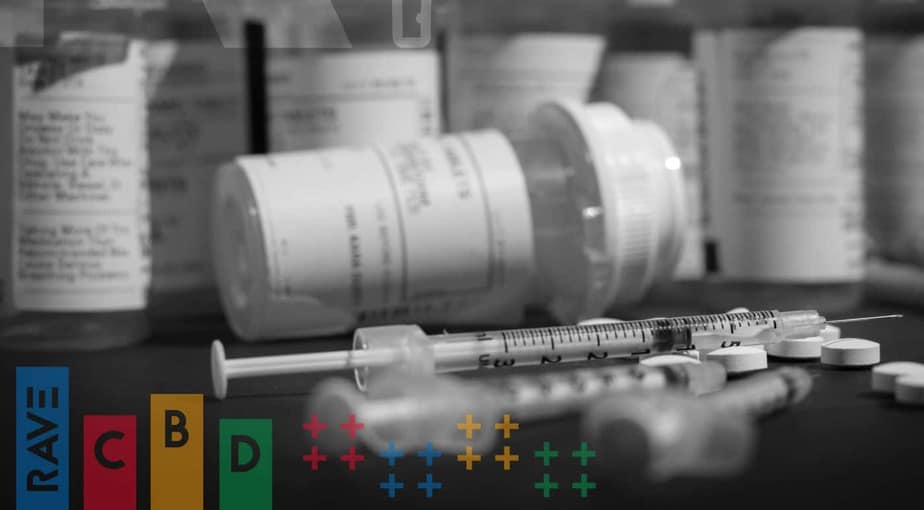
Addiction has various definitions, but what almost all of them include is the compulsive use of a substance or activity despite the known harm of engaging in the activity or substance. In other words, it means using a drug, alcohol, or other substance, or engaging in a behavior like gambling even if you know it will have a negative impact on your life.
A shocking 10% of Americans will deal with a substance use disorder in their lifetime. Addiction does not solely relate to substances such as cocaine, alcohol, or heroin, but extends to activities such as gambling, sex, and eating. Sugar, caffeine, and video game addictions are real.
Can the benefits of CBD oil help?
“CBD oil may influence the same area of the brain that opiates target.”
Addiction is a challenging condition to treat, and many individuals who suffer from a substance use disorder never receive treatment. It’s extremely difficult to beat an addiction without proper help, and only about 10% of people who suffer from an addiction will ever receive formal addiction treatment services.
This means that 90% never receive treatment and are left to either find a DIY treatment—or continue to suffer from the disorder.
Common signs and symptoms of an addiction disorder include:
- Intense cravings for the drug or activity that make it difficult to focus on other tasks
- Needing to take more of the substance over time to feel the same effects
- Spending money on the substance or activity when you can’t afford it
- Putting yourself in dangerous situations to get the substance or perform the activity
- Ignoring activities that were once important to you so that you can use substances
- Recognizing that the substance or activity is causing problems in your life, but being unable to stop engaging in the activity or using the substance
Current Treatments
If a person does get help, conventional treatment usually involves a combination of psychotherapy and medications. The use of medicines in the treatment of substance abuse disorders fall under the heading of Medication-Assisted Treatment (MAT), which has become the standard of care when treating this population.
The basic idea behind MAT is to normalize chemicals in the brain that have been disrupted by the use of addictive substances. This can help ease the transition that the brain has to go through when coming off drugs or alcohol.
CBD and Addiction

CBD oil is piquing the interest of addiction researchers, especially around opiate addiction. Not to spoil the surprise, but what they are finding is promising (stay tuned). Researchers administered CBD and found that the CB1 receptor that is activated by CBD is located in the same reward pathway as the opioid receptor and may play a role in opioid addiction.
In other words, CBD oil may influence the same area of the brain that opiates target. What does this mean? Let’s explore.
There have not yet been any studies that look at the management of opioid withdrawal with CBD, but CBD has been studied in early opioid recovery to decrease a big part of addiction—cravings. One study found that CBD oil helped people recovering from heroin addiction reduce their cravings for heroin when shown triggering pictures. If CBD oil can help manage cravings in recovery, this is great news.
“Theoretically, CBD has enormous potential in treating addiction due to the receptors that are activated by CBD.”
Right now, we don’t have quite enough research on using CBD for addiction to draw any strong conclusions. So really, we just need to wait until more research is done. Theoretically, CBD has enormous potential in treating addiction due to the receptors that are activated by CBD.
Also, since CBD can manage some types of chronic pain, CBD may help decrease the need for opiate prescriptions and prevent some individuals from starting to taking opioids to begin with.
So what about food, sex, and gambling addictions? The use of CBD for managing these types of addictions has not been studied yet. But it is likely only a matter of time!
Alzheimer’s Disease

Alzheimer’s disease is a devastating disease of the brain that affects memory, personality, and other aspects of cognition. If you have a loved one who has experienced this disease, you know firsthand how difficult it is. It is the most common form of dementia, and the rate of this disease is on the rise. So let’s look at the how the benefits of CBD oil might help.
For a small portion of people, Alzheimer’s disease is genetically linked, but for most, it is not passed down through family lines. So what causes Alzheimer’s? The root of Alzheimer’s is in inflammation (what disease isn’t, really?), which leads to senile plaques and neurofibrillary tangles and, subsequently, leads to cognitive decline. These two findings in the brain are the keynotes of Alzheimer’s.
Sadly, there is no cure for Alzheimer’s disease. Current treatments are not overly effective and do not reverse the symptoms of the disease. Bad news. Also, they cause a host of side effects. More bad news.
Can CBD Help?
We do, however, have some good news: Emerging research has found that CBD may be beneficial for managing the symptoms of Alzheimer’s disease. How? Well, the area of the brain that is most affected, the hippocampus, is an area CBD and the endocannabinoid system stimulates.
“The area of the brain that is most affected, the hippocampus, is an area CBD and the endocannabinoid system stimulates.”
As we mentioned before, CBD has been shown to promote hippocampal neurogenesis (or new neuron growth). Is it possible that CBD can undo the damage seen in Alzheimer’s? Maybe. Right now, we just don’t know—but these preliminary findings are very promising.
Scientists have also conducted animal studies to better understand CBD in Alzheimer’s. A recent rat study found that CBD decreased inflammation in the brain and promoted new neuron growth (neurogenesis). Quenching inflammation—this is a good thing. CBD reduces inflammation through the CB2 receptors of the endocannabinoid system and by modulating glutamate receptors.
“Is it possible that CBD can undo the damage seen in Alzheimer’s? Maybe. Right now, we just don’t know—but these preliminary findings are very promising.”
What is glutamate? Glutamate is an excitatory chemical in the brain, which can be toxic to neurons when experienced in high doses. Given that inflammation is damaging to neurons, researchers believe that CBD may help reduce inflammation in the brain and be beneficial for managing Alzheimer’s disease.
Although this is exciting news, most of the research surrounding CBD and Alzheimer’s disease is in rat studies at this point in time. Therefore, we need more research in humans to have a better understanding of the benefits of CBD oil for Alzheimer’s. But for those eager to find relief for inflammatory and neuropathic pain, it may be worthwhile to experiment with CBD oil.
Diabetes
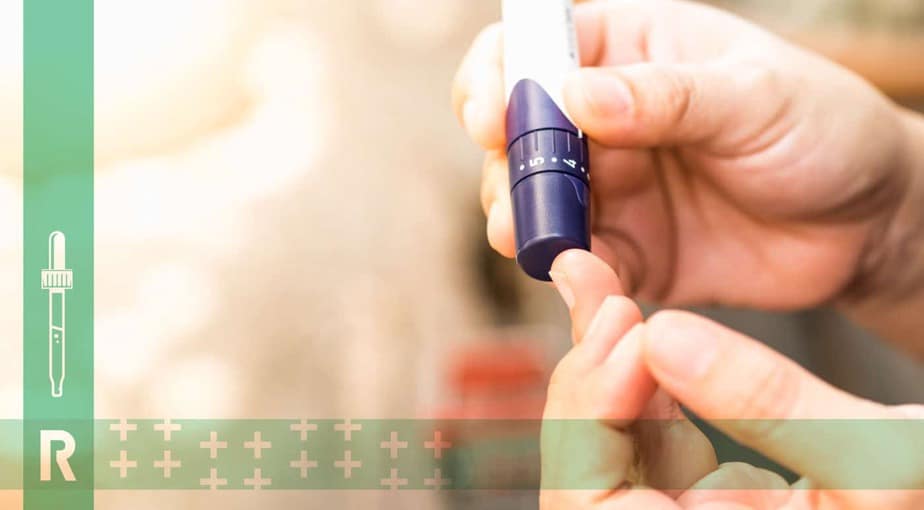
Around 10% of Americans have been diagnosed with diabetes. Diabetes is a medical condition characterized by high blood sugar. The problem? High amounts of sugar in the blood over prolonged periods of time affect other organs, like the kidneys, eyes, brain, blood vessels, and pancreas.
Types of Diabetes
The pancreas is responsible for secreting a hormone called insulin to decrease the amount of sugar in the blood when blood sugar becomes elevated. Over time, very high sugar levels cause your insulin secreting glands to get tired. What happens when they get tired? They stop working. This leads to Type 2 diabetes.
Type 2 diabetes (sometimes called insulin-resistant diabetes) is characterized by the body being resistant to the insulin that is secreted by the pancreas, or the pancreas doesn’t produce enough insulin to regulate the blood sugars (or both!).
“Over time, very high sugar levels cause your insulin secreting glands to get tired. What happens when they get tired? They stop working.”
Type 2 diabetes is the most common type of diabetes that afflicts Americans. This type of diabetes commonly shows up in middle age and is linked to an unhealthy diet and physical inactivity. Yes, eating donuts on the couch is a risk factor.
There is another type of diabetes that is different. Type 1 diabetes is when a person’s body cannot make insulin because their own immune cells attacked the pancreas. Sounds scary, but this is describing autoimmunity. At one time, it was thought that people were born with type 1 diabetes, but our current understanding is that an individual can develop this disease at any point in life.
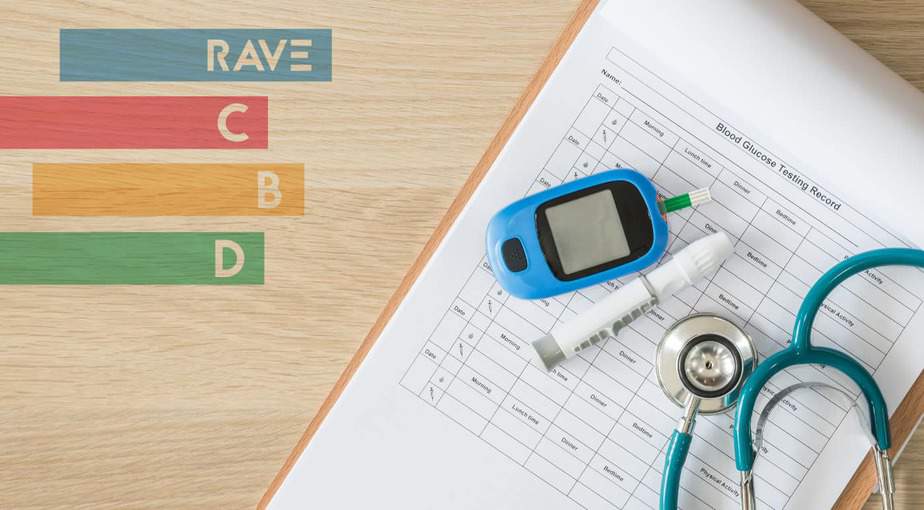
Gestational diabetes is a form of diabetes that develops when a woman is pregnant and commonly goes away after she gives birth.
Common signs and symptoms of diabetes include:
- Urinating excessively (polyuria)
- Excessive thirst (polydipsia)
- Extreme hunger (polyphagia)
- Unexplained weight loss
- Tingling or numbness in the hands and feet (paresthesias)
- Recurrent or severe infections
When it comes to treating diabetes, the conventional treatment depends on the type. Type 1 diabetes treatment typically involves injecting insulin into the body around periods of eating. In a nutshell, the goal is to replace the insulin the body cannot make.
Type 2 diabetes is treated with medications that aid insulin secretion, coupled with diet and lifestyle modifications (these are important). Both types of diabetes require the individual to monitor their blood glucose throughout the day. Gestational diabetes can be treated with insulin and diabetic medications depending on the severity of the blood glucose dysregulation.
“Almost all the scientific studies conducted to date utilizing CBD for diabetes have been on animals.”
So where does CBD fit into the picture? Well, we don’t know yet but we know it relates to inflammatory and neuropathic pain.
Almost all the scientific studies conducted to date utilizing CBD for diabetes have been on animals. Animal studies have shown that CBD oil administered to rats reduces early pancreatic inflammation and brain inflammation, and can help delay the onset of type 1 diabetes in non-obese mice. So CBD may be helpful, but it’s hard to say just yet.
The human studies that have been performed utilized CBD for diabetic neuropathy and pain relief. It is common for diabetics to experience nerve pain due to their high blood sugar levels. It was mentioned earlier (in the pain management section) that many of the studies conducted on neuropathy use a combination of CBD and THC. Both the animal and human studies that have been conducted have shown that this combo is effective for helping manage neuropathy symptoms and chronic pain.
Blood Pressure and Heart Health
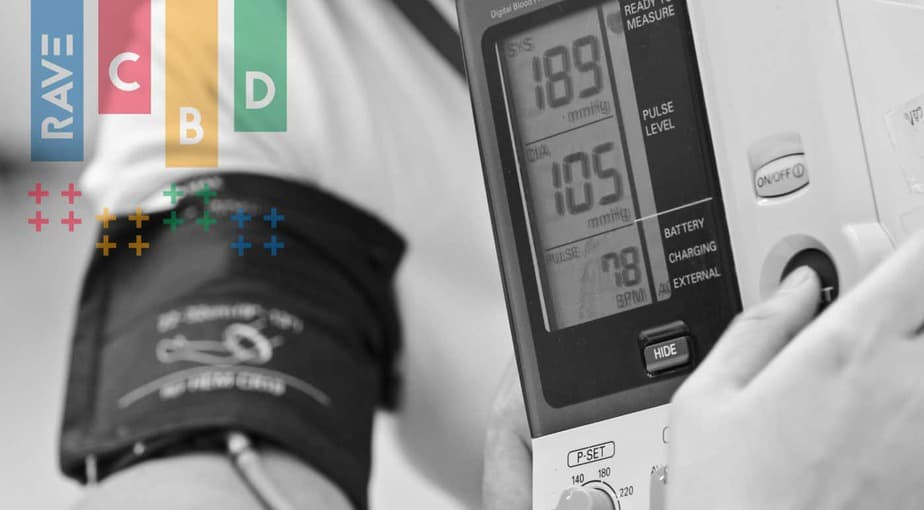
High blood pressure, or hypertension, is something your doctor may have warned you about. Why? Well, it is a risk factor for heart attacks, strokes, and kidney disease. Yep, serious stuff.
Although hypertension puts increased pressure on the cardiovascular system, a person may have high blood pressure for a long time and not know it. For many, there are no early signs or symptoms. This is why seeing your doctor is important!
How does high blood pressure happen? Some people are predisposed to hypertension, meaning their genetic makeup makes it more likely for them to have high blood pressure. However, lifestyle factors such as being overweight, experiencing high stress, smoking cigarettes, and eating a poor diet can increase a person’s risk.
“CBD is well known for its ability to decrease inflammation as well as stress and anxiety. Both of these factors are risks for high blood pressure and cardiovascular disease.”
The main concern is when blood vessels become inflamed and damaged from the high pressure in the vessels. This process weakens them, which can lead to vessels breaking or stimulate the body to lay down cholesterol to repair the damage. The result: a perfect storm for narrowed vessels and cardiovascular disease.
The typical first steps in managing blood pressure are modifying risk factors—such as changing your diet, reducing stress, beginning an exercise program, quitting smoking, and reducing inflammation. It’s all in your lifestyle! If these alone do not work, medications are usually the next step.
CBD is well known for its ability to decrease inflammation as well as stress and anxiety. Both of these factors are risks for high blood pressure and cardiovascular disease. Does CBD have a place in managing high blood pressure? Scientists had the same question. Because of these characteristics of CBD, researchers have begun to look into CBD for managing high blood pressure to see if it might help to lower blood pressure.

In animals, CBD is shown to decrease inflammation in blood vessels, which is an essential aspect of cardiovascular health. Since inflammation damages blood vessels, making them weaker, CBD may have a place in cardiovascular health; however, more research studies are needed.
To date, there have been very few human studies on CBD and how it affects blood pressure. A recent study found that a single 600mg dose of CBD effectively reduced the blood pressure of the participants during a time they experienced high levels of stress. Interesting, but not quite enough research yet.
“We do know that CBD can help manage stress and inflammation, but we cannot say for sure if CBD is of great benefit in lowering blood pressure.”
Although these results are promising, we still do not know if CBD is effective at reducing blood pressure short-term and long-term or if it will work for people whose high blood pressure is not due to stress. Many questions, and not enough answers at this point.
Let’s summarize: We do know that CBD can help manage stress and inflammation, but we cannot say for sure if CBD is of great benefit in lowering blood pressure. Early research is promising, and we look forward to future studies.
Psychosis

Psychosis is a symptom that we often see occur with other mental health disorders, including schizophrenia and bipolar disorder. Psychosis can also be caused by drug use. What exactly is psychosis? The typical symptoms are hallucinations (false perceptions in sight, sound, or smell), delusions (false beliefs), and sleep disorders and/or behavior changes. Simply put, a person’s experience of reality changes.
The most common treatment for psychotic symptoms is antipsychotic medications. These drugs decrease the amount of dopamine in the brain, which is the neurotransmitter believed to be involved in psychosis.
Unfortunately, these drugs have a lot of serious side effects, including weight gain, abnormal movements, and liver damage. These side effects make these medications intolerable for some people, and it’s not uncommon for a person to stop taking these drugs due to their side effects.
Also, it has sparked research into other possible therapies to help manage symptoms. CBD anyone?
“These side effects make these medications intolerable for some people, and it’s not uncommon for a person to stop taking these drugs due to their side effects.”
It is well known that smoking marijuana can make a person feel “high” and experience hallucinations, paranoia, and delusions—aka psychotic symptoms. This is because marijuana contains high levels of THC. THC is the psychoactive constituent that can produce psychotic symptoms in some people. What’s interesting is that CBD has been shown to reduce the psychotic effect THC has when they’re used together. It seems as though Mother Nature knew what she was doing when she put both of them in marijuana!
Researchers have looked into whether CBD may be helpful for managing psychotic symptoms that are not associated with marijuana, but due to a mental health diagnosis like schizophrenia or bipolar disorder. What did they find?
A recent human study on using CBD to combat psychosis related to schizophrenia showed that CBD was as effective as conventional antipsychotic drugs, without all the adverse side effects. This is huge! Based on these findings, CBD seems like a valuable option to keep exploring.
“The research into CBD for psychosis is just beginning; however, what we know so far is both promising and exciting for the future of mental health.”
We previously mentioned anandamide, or “the bliss molecule,” which is reported to be lower in people with psychosis and schizophrenia. And researchers have found that CBD increases this molecule. They believe that by increasing anandamide, CBD may help alleviate psychotic symptoms. But there may be even more to it.
Researchers are looking into how exactly CBD may help reduce psychosis. Aside from increasing anandamide, CBD may also stimulate the serotonin receptors (the same target of antidepressant drugs) as well as reduce brain inflammation through PPARγ receptors and glycine receptors. The research into CBD for psychosis is just beginning; however, what we know so far is both promising and exciting for the future of mental health.
Tumors
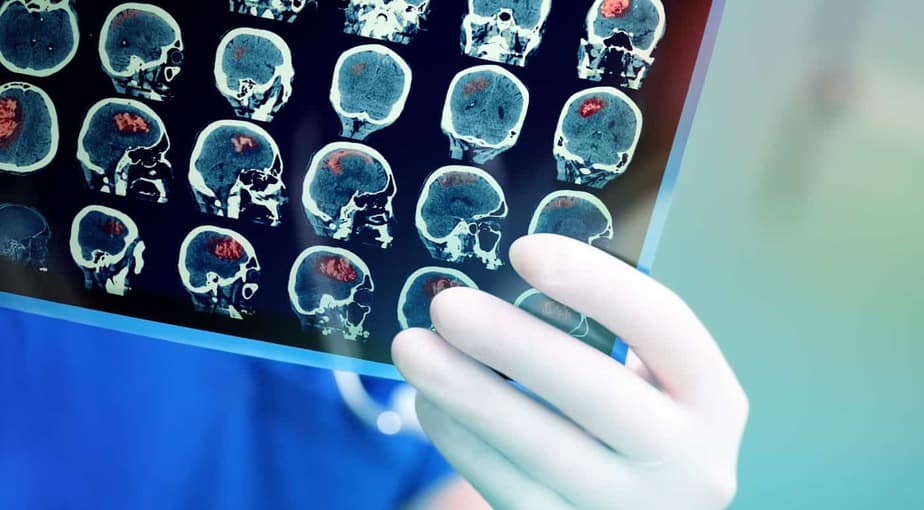
Tumors are a collection of abnormal cells. Some tumors are benign (non-cancerous), while others are cancerous and may spread to different body parts. These are the potentially dangerous ones. While benign tumors are less likely to affect a person’s health, cancerous tumors can cause harm to a person and even be deadly. In some cases, cancer related symptoms are even worse than the cancer itself–such as cancer pain management.
The current treatment options for tumors range from watching and waiting, to surgery, to radiation, to chemotherapy. Many of these treatments are very harsh and cause numerous adverse side effects. Even after a tumor is removed, there is a chance that it could return. This has led people to look into other possible ways to reduce tumor size and prevent their recurrence.
“Right now, what we know about CBD and tumors is still preliminary. Cancer is a serious disease that should always be managed under the guidance of a doctor.”
What’s interesting is that CBD and marijuana products are sometimes recommended to help with nausea and other side effects of chemotherapy such as cancer pain management—and scientists have now begun to look into whether CBD may have other benefits when it comes to tumors. This is what they’ve found so far:
Studies in test tubes, as well as in animals, have shown that CBD may help prevent tumors from growing and spreading. They’ve also found that CBD may work well in suppressing cancer related symptoms such as to treat pain.
This study also mentioned that CBD could suppress the immune response of the body’s immune system, which could allow tumor cells to divide. A tad conflicting. In short, it is possible that CBD may be helpful for tumors and cancer related symptoms, but right now, we do not understand the mechanisms well enough to say for sure.
There are some promising considerations though, specifically relating to cancer related symptoms.
“The current treatment options for tumors range from watching and waiting, to surgery, to radiation, to chemotherapy. Many of these treatments are very harsh and cause numerous adverse side effects.”
The International Journal of Cancer Research and Treatment looked at 119 cases of people with solid-tumor type cancers who used CBD. They found (using repeated scans) that 92% of these patients saw a significant reduction in their tumor’s size. In other words, their tumors shrunk! Also, patients experienced few to no side effects from using CBD and saw some significant reduction in cancer related symptoms, according to these clinical trials.
Right now, what we know about CBD and tumors is still preliminary. Research in this area is very new, and it is essential to better understand whether, and how, CBD may affect tumors before using CBD for cancer. Severe forms of cancer and cancer related symptoms are both a serious and should always be managed under the guidance of a doctor.
Focus

Increasing focus and concentration, as well as the memory, has become a hot topic in recent years with the explosion of nootropics that promise to boost your cognitive powers. “Limitless” anyone?
Many nootropic supplements include botanicals, which have been shown to improve particular parameters of cognitive functioning and show significant reduction in cognitive dysfunctions. However, few of these nootropics have incorporated CBD into their products. Looks like CBD is getting picked last in gym class!
Why is CBD not included in these nootropic formulas? The answer is simple: There have not been studies looking specifically at CBD’s effect on focus.
“Studies indicate that low doses of CBD (less than 50mg) can help individuals decrease anxiety.”
However, CBD and anxiety has been researched, and the results have been positive. Individuals who experience anxiety can have difficulty focusing. It would stand to reason that if the difficulty concentrating is due to anxiety, addressing the anxiety should resolve the focus concerns.
Clinical trials have shown CBD to affect serotonin levels in the brain. Serotonin is a significant target of pharmaceutical drugs that address anxiety, such as SSRIs. Studies indicate that low doses of CBD (less than 50mg) can help individuals decrease anxiety and provide a significant reduction in lack of focus. Perhaps studies on CBD and focus are on the horizon. We’ll keep our eyes peeled!
Ways to Take CBD: Benefits of CBD through Different Methods
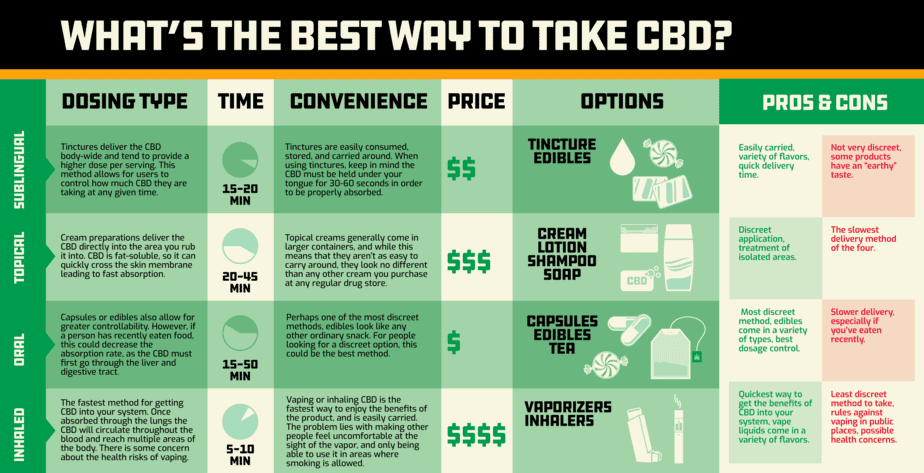
When looking for CBD or CBD products, you will find that it is available in a variety of forms, including:
- Tinctures
- Creams and topicals
- Capsules
- Vape products
How to choose? It depends. Choosing a delivery method is influenced by what you are using CBD for.
Creams and Topicals
Creams and topical preparations deliver the CBD directly into the area you rub it into—such as your joints, muscles, and of course, skin. CBD is fat-soluble, so it can quickly cross the skin membrane and absorb. This makes CBD cream ideal for alleviating chronic pain and inflammation at the source, but it is not as well suited for helping with anxiety or sleep disorders, where the CBD needs to circulate to the brain.
The dosage of CBD in creams varies, but they typically provide 6-10mg per application (this is low). Also, the price per mg of CBD in creams tends to be higher compared to tinctures. Keep in mind, since the CBD is not circulating throughout the system, there is less of a chance of experiencing any kind of side effects. Good news for you sensitive folks!
Tinctures and Capsules
CBD tinctures and capsules are taken orally and deliver the CBD body-wide. They tend to deliver a higher dose of CBD per serving and, in most cases, are less expensive per mg of CBD than creams. Yay for your wallet!
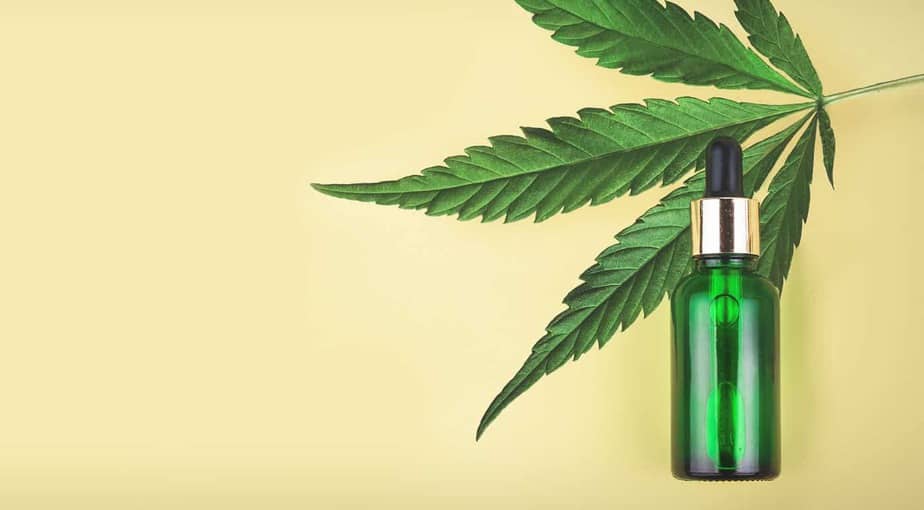
CBD tinctures and capsules often provide 10-20mg per serving, which can be adjusted using the tincture dropper or taking multiple capsules. This allows users to control how much CBD they take at any given time. Yay for control freaks!
CBD will circulate throughout the body and, generally, a person will feel its effect after 15-20 minutes. However, if a person has recently eaten, this could decrease the absorption.
Since this method delivers CBD throughout the brain and body, it can be helpful for a variety of purposes. Versatility is the name of the game. However, you are more likely to have side effects using an oral delivery method than a topical cream.
Vape Products
CBD vape products are ingested through the lungs, and you will feel the effects of the CBD faster than with any other delivery method. And we mean quick! In most cases, it takes around 10 minutes to feel the effects. Once absorbed through the lungs, the CBD will circulate throughout the blood and reach multiple areas of the body.
“Right now, we do not fully understand all the safety risks of vaping.”
Vape products are one of the most cost-effective forms of CBD. However, there have been recent concerns surrounding the long-term effects of vaping. Vape products are raising eyebrows all over the country. Many vape products contain propylene glycol, which breaks down into formaldehyde—yes, the same stuff they use to embalm bodies!
Right now, we do not fully understand all the safety risks of vaping. Also, vaping may not be advisable for people who have lung issues, as it is possible that vaping could exacerbate them–but on the other hand, CBD has shown to provide a significant reduction in the body’s inflammatory response, which might help to reduce the side-effects of vaping in the lungs.
Side Effects
So you may be saying to yourself, “Sure CBD sounds great, but what are the side effects?” Although CBD is considered very safe by the medical community, it does have the potential to cause side effects in some people.
Relax and breathe, because the side effects of CBD are relatively mild compared to other drugs—even ones as mundane as aspirin. The clinical trials on the subject have shown only mild issues to be made aware of.

Below are listed some of the most common side effects experienced when taking CBD and the percentage occurrence of those who developed side effects.
Common side effects of CBD products include:
- Diarrhea (≤20%)
- Dry mouth
- Rash (≤13%)
- Insomnia
- Anxiety
- Appetite change
- Decreased appetite (≤13%)
- Weight gain
- Weight loss (≤10%)
- Mood changes/irritability
- Tiredness (≤25%)
- Nausea/vomiting/dizziness
- Anemia (≤30%)
- Increased liver enzymes (≤10%)
The good news is that most people who do experience side effects from CBD report that they are only mild to moderate in severity. The better news is that, unlike many medications that can cause severe side effects, the side effects of CBD are not likely to cause any serious harm.

Now, breaking down complex human metabolism chemistry can be as simple as knowing that two organs (your liver and your kidneys) are primarily responsible for getting rid of things you place in your body. The liver is the star when it comes to CBD—which is why elevated liver enzymes occur in about 10% of people who use CBD. Consult your healthcare provider before starting CBD, and also check to see if you take other medications that can further elevate liver enzymes.
Areas of Possible Concern
Pregnancy and Breastfeeding

You may be willing to take a small amount of risk with your own body, but when you’re carrying another inside you it may be a different story. Pregnancy can be a complicated maze to navigate with regard to anything you put into your body—because you literally have to account for two beings!
So if you’re pregnant or breastfeeding, consult your physician before you start using a CBD product. As with most natural products, CBD has not been extensively studied in pregnant women.
“The bottom line is that it’s better to not expose an unborn baby to anything unless it’s absolutely necessary.”
CBD does appear to be present in the serum of the umbilical cord, indicating that mothers who take CBD products will also expose their child to this substance—and studies conducted on pregnant animals have reported adverse events.
The bottom line is that it’s better to not expose an unborn baby to anything unless it’s absolutely necessary, which is something you and your healthcare provider can discuss.
Quality Control and Regulation
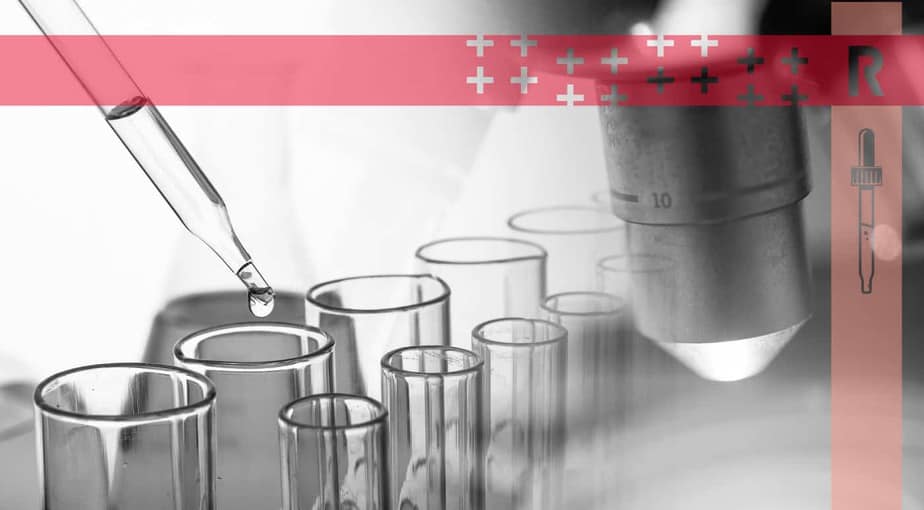
What’s the deal with the purity issue of CBD products we’re hearing about? Most CBD products are not regulated by the FDA, but certain prescription CBD products (such as Epidiolex) are approved for the treatment of seizures associated with Lennox-Gastaut syndrome or Dravets syndrome. No CBD products—whether they’re by prescription or not—are approved for use in individuals two years or younger.
Is it pure or impure? That is the question! By now you should be asking the question of how the public can ensure the quality and purity of the CBD they purchase.
“It is imperative to purchase your CBD product from a company that performs third-party laboratory testing. “
CBD products can only be sold legally if the products contain less than 0.3% THC content. A study conducted in 2017 found that around one-fifth of CBD products tested contained more than 0.3% THC. Yep, it took us aback as well. This lack of consistent purity is concerning, making it imperative to purchase your CBD product from a company that performs third-party laboratory testing.
Reputable companies that sell CBD products pay independent laboratories to test their products to ensure that they are producing consistently reliable products. So yeah, independent testing seems like a no brainer, but why wouldn’t all companies get their products tested by independent labs?
The truth is, this process costs money, and those costs will be reflected in the total cost of the product. Some companies decide to skip the extra testing to be able to offer lower-priced CBD products. Ultimately, the testing is crucial to know the exact amounts of CBD and THC you are ingesting.
Medications Interactions
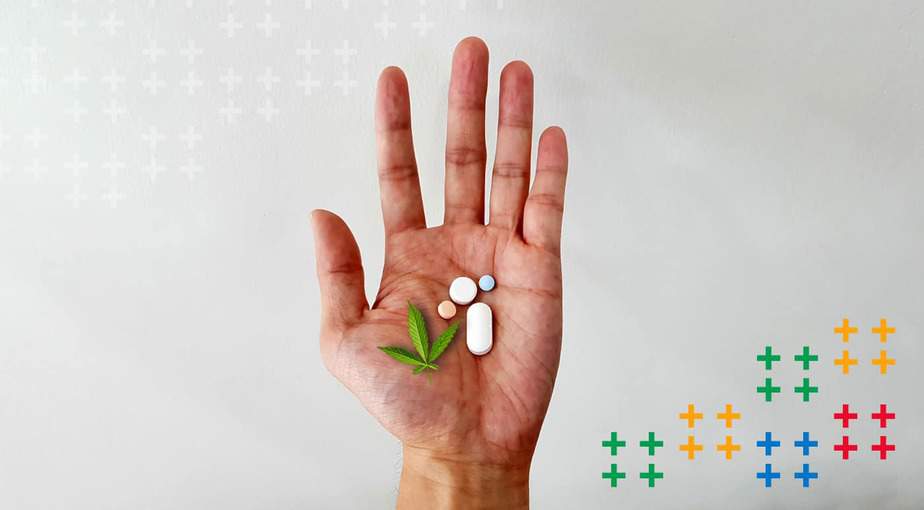
Back to this body complexity thing. Again… medications and supplements can interact with one another in various ways. Unsurprisingly, some medicines have been shown to have a moderate interaction with CBD products and should only be used in combination after consultation with a licensed healthcare professional. I mean, these folks do go to school for years to learn to advise you about these interactions.
Medications known to interact* with CBD include:
- Alcohol
- Aleve
- Benadryl
- Cymbalta
- Lyrica
- Tylenol
- Zoloft
- Zyrtec
*Other medications have the potential to interact with CBD. Not all medications known have been studied with coadministration of CBD. If you experience new or worsening symptoms when taking CBD with another medication, contact your healthcare professional immediately.
CBD Hasn’t Been Fully Studied
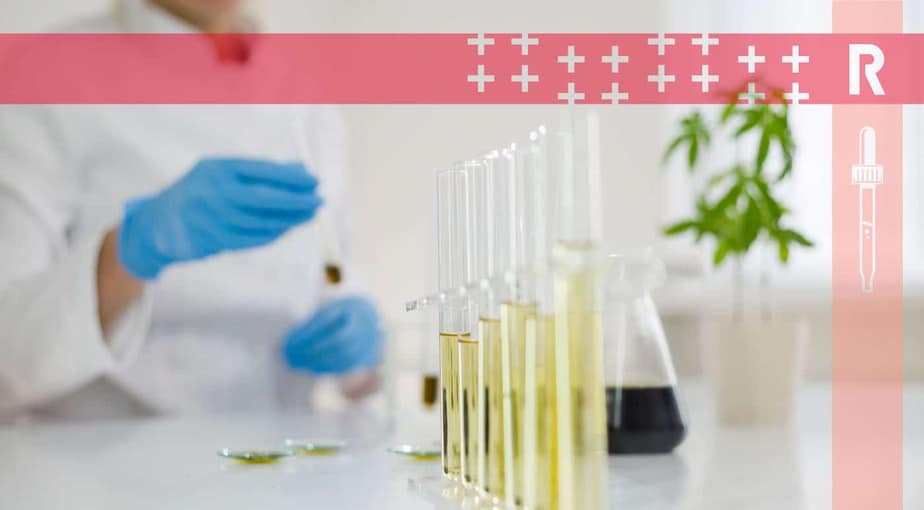
Clinical trials and research investigate CBD and its utility in various medical conditions is still in its infancy. Unsurprisingly, studies using marijuana go back many decades—can you blame them with the THC content? CBD by itself has only recently been isolated and studied for its unique therapeutic potential.
The diehard CBD user may be surprised to learn that most conditions lack even one clinical trial using CBD in isolation to treat a specific disorder. This leaves uncertainty about the usefulness of CBD for particular conditions.
“Research on CBD and its utility in various medical conditions is still in its infancy.”
And just because it worked on a rat, that doesn’t mean it will work the same way for a human! Caution should be exercised when attempting to translate animal studies for humans, as other animals can react differently to pharmaceuticals than humans might.
Overall, researchers are still attempting to tease out all the ways in which CBD interacts with the human body. By now you may have realized that your body is amazingly complex and there are still many unknowns. This is likely to be an active topic of research for many decades to come because of the complexity and potential benefits of CBD and understanding the endocannabinoid system.
Dosage recommendation
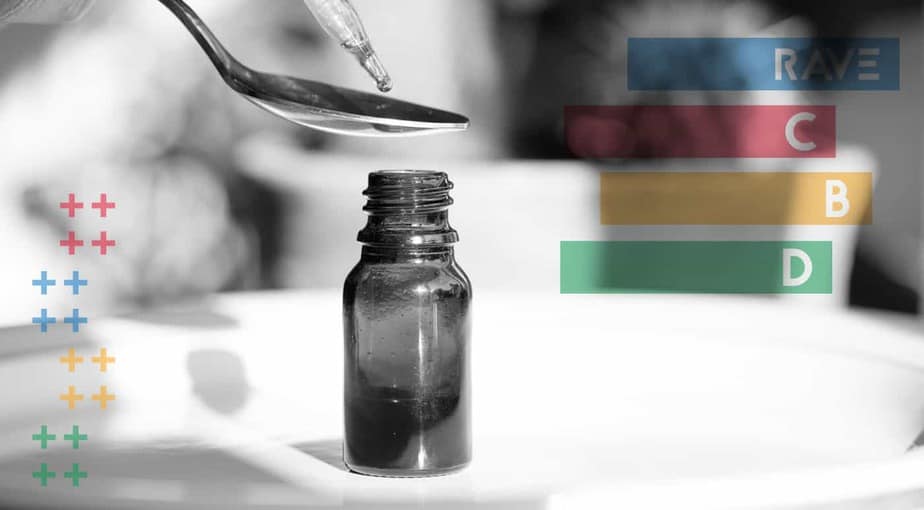
What dose of CBD should I be using?
Those perfectionists who need a clear-cut answer may be disappointed, because this question is difficult to answer. Clinical trials have shown benefits and adverse side effects at various dosages of CBD. The simplest answer is that it is always better to ingest the least amount of a product, drug, or supplement as possible.
Many CBD products come in at a standard dose of 20mg per serving. It would be wise to start out at the lowest possible dose and see if you get the results you are looking to achieve. If not, then you want to slowly increase the amount of CBD you take. Performing this process may be slow, but it will decrease the likelihood of unpleasant side effects that may result from using of CBD.
How should I dose CBD if I’m trying to decrease my anxiety?
If reading the above question gave you anxiety, then this answer may help calm you down. When addressing anxiety, you may want to keep the dose of CBD under 50mg/day. Clinical trials show some evidence that CBD when dosed under 50mg/day can decrease anxiety, while higher doses may cause an increase in anxiety.
If you’re taking CBD to address anxiety concerns, and you feel an increase in anxiety, it may be best to decrease the dose of CBD or stop taking the product altogether.
Can I overdose on CBD?
One of the most important questions you didn’t ask, but we’re answering! The simple answer to this question is no—if you’re thinking of an overdose in terms of death. There has never been a reported death from a CBD overdose (phew!), but unpleasant side effects such as acute and anticipatory nausea and vomiting are more likely to occur at higher doses (ugh).
This underscores the importance of slowly increasing the CBD dose when initially starting a product containing CBD.
Dosages of up to 1,500 mg/day of CBD have been reported safe in clinical trials.
Bottom Line
So, all in all, is CBD legal? For starters, CBD is an extremely safe product. To be legally sold in the United States, CBD products have to contain less than 0.3% THC content. This low THC threshold ensures that products containing CBD (that are third-party tested to ensure less than 0.3% THC) will not get you “high.”
There are CBD products for all different preferences, uses, and personalities. With the explosion of the CBD market, many CBD products have become available to consumers in a variety of forms such as topical creams, oils, capsules, and even gummies. Choosing the right form of CBD depends mainly on preference and why you are using the product.

Take note, you should only purchase products from companies that use third-party testing to ensure consistent purity and potency. Most companies that utilize independent laboratory testing openly tell the consumer in the description of the product—look for these reports. They are important because CBD products are not FDA approved or regulated, so without an independent laboratory analysis, you don’t know for sure what you are putting into your body!
One CBD product has been approved by the FDA—Epidiolex has been approved for the treatment of certain types of seizures. The FDA approval of this medication may pave the way for FDA approval of CBD for other conditions. Here we come.
Although there has been a ton of research and clinical trials conducted on CBD, it truly is just beginning. Also, the research that has been conducted is promising. The outlook is good. Some conditions show more promise than others, and the exact mechanism of how CBD interacts with the body is still being uncovered by scientists.
As always, before beginning a new medication or supplement, including CBD, you should speak with your doctor to discuss the potential risks and benefits. CBD may not be the best supplement for your particular condition or health status, and your doctor will be able to provide advice about alternatives that are better suited to your needs.
